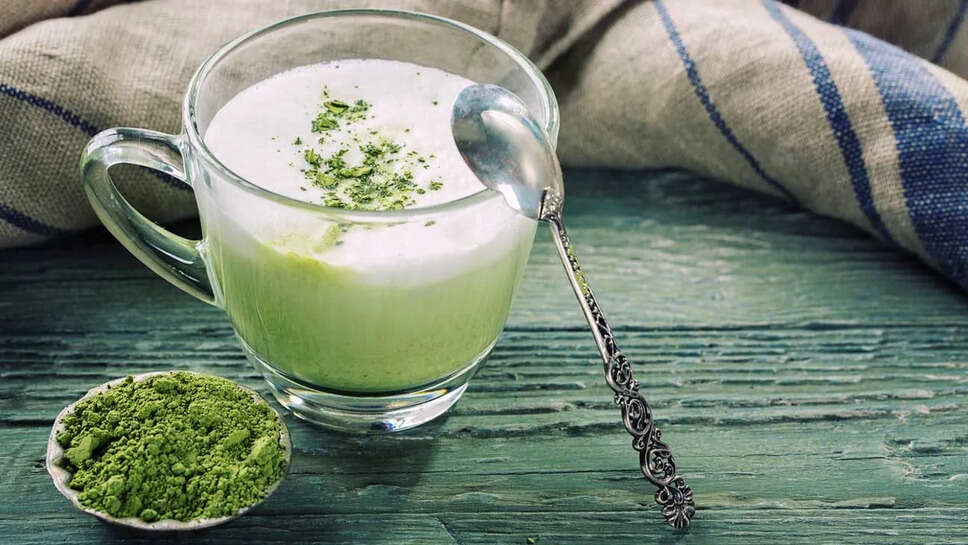Green Gold: 5 Verified Health Benefits of Drinking Matcha Daily

The world of wellness is constantly buzzing with superfoods that come and go, but matcha — a finely ground powder made from specially grown and processed green tea leaves — continues to hold a revered position. Recently, a well-known cardiologist described matcha as "science in a cup", citing multiple health benefits, particularly for heart health. While celebrity endorsements and viral reels often glorify it, we take a closer look at five science-backed reasons why matcha might truly deserve a place in your morning ritual.
1. Rich in Antioxidants — Especially Catechins
One of the most well-known benefits of matcha lies in its incredibly high antioxidant content, particularly a group called catechins. Among them, epigallocatechin gallate (EGCG) is the most powerful. This compound helps neutralize free radicals in the body, reducing oxidative stress and inflammation — key contributors to heart disease, cancer, and neurodegenerative conditions.
Cardiologist’s View:
“EGCG in matcha protects the blood vessels from oxidative stress and prevents plaque formation in arteries,” says the expert. This means that regular consumption may reduce your long-term risk of cardiovascular events.
Scientific Check:
Studies have confirmed that matcha contains up to 137 times more EGCG than regular green tea, making it a concentrated source of protective antioxidants.
2. Boosts Cardiovascular Health
A core reason for a cardiologist to endorse matcha is its positive influence on cardiovascular markers. Matcha has been shown to:
-
Reduce LDL (bad) cholesterol
-
Improve HDL (good) cholesterol
-
Lower blood pressure
-
Support arterial flexibility
This makes it a potent heart-healthy beverage when consumed regularly and paired with a balanced diet.
Cardiologist’s View:
“The active polyphenols in matcha improve endothelial function and help regulate blood pressure. That’s a major win for long-term heart health.”
Scientific Check:
Peer-reviewed studies have linked green tea consumption to reduced risks of stroke and heart attack, and matcha, being a more concentrated form, could amplify those benefits.
3. Natural Energy Without the Crash
Unlike coffee, which can lead to spikes and crashes in energy levels, matcha provides a stable boost in alertness thanks to its combination of caffeine and L-theanine. L-theanine is an amino acid that promotes calmness and focus, moderating the jittery effects of caffeine.
Cardiologist’s View:
“I recommend matcha to patients who want mental clarity without putting excess stress on the heart. Caffeine is gentler in this form, and it improves focus without triggering arrhythmias or blood pressure spikes.”
Scientific Check:
Studies have shown that L-theanine + caffeine improves brain function more than caffeine alone, enhancing memory, attention, and task performance — all without overstimulating the nervous system.
4. Supports Weight Management
Matcha may also help with fat oxidation and metabolism, which are crucial for those managing weight or metabolic syndrome — both risk factors for heart disease. The catechins in matcha enhance the body’s thermogenesis (calorie-burning capacity), particularly when consumed before exercise.
Cardiologist’s View:
“Weight control is critical for heart health. Matcha can give a mild metabolic nudge, especially if combined with a good diet and exercise.”
Scientific Check:
One study found that drinking green tea extract — comparable in content to matcha — increased fat burning by 17% during moderate exercise. It also modestly reduced body fat over a 12-week period.
5. Detoxifies Naturally and Gently
Matcha is grown in the shade for weeks before harvest, increasing chlorophyll levels. This makes it not only a vibrant green but also a natural detoxifier. Chlorophyll helps the body eliminate heavy metals and chemical toxins, supporting liver function — a lesser-discussed, but critical, factor in overall cardiovascular health.
Cardiologist’s View:
“Cardiometabolic health is closely tied to liver function. A sluggish liver impacts cholesterol, blood sugar, and more. Matcha’s gentle detoxifying properties help the liver perform better.”
Scientific Check:
While evidence is still growing, chlorophyll has been shown in animal studies to aid liver health and toxin excretion. More human studies are needed, but early results are promising.
Bonus: Mental and Emotional Well-Being
Although the cardiologist focused primarily on physical health, there’s no ignoring matcha’s impact on mental wellness. Regular drinkers often report feeling calmer and more focused. The high L-theanine content may promote alpha brainwave activity, associated with alert relaxation — a valuable state for reducing anxiety and chronic stress.
And as we now know, chronic stress is a direct contributor to heart disease.
What to Watch Out For
Despite its many benefits, matcha isn’t a cure-all and should be consumed mindfully:
-
Don’t overdo it: It still contains caffeine — 1–2 cups per day is ideal.
-
Choose quality: Always opt for ceremonial-grade matcha from reputable brands to avoid contamination with heavy metals.
-
Skip the sugar: Many café-style matcha drinks are loaded with sugar or milk — which counteract its benefits.
Matcha Lives Up to the Hype
In a world of trendy health drinks, matcha seems to hold its ground with time-tested and scientifically backed advantages. When a cardiologist refers to it as "science in a cup," it’s not just marketing fluff — it reflects matcha’s multi-dimensional benefits for the heart, brain, metabolism, and more.
Whether you sip it hot, blend it into smoothies, or whisk it into traditional tea bowls, incorporating matcha into your diet could be a simple but meaningful investment in your long-term health. And with growing clinical research supporting it, this is one green habit that might just be worth keeping.
.jpg)